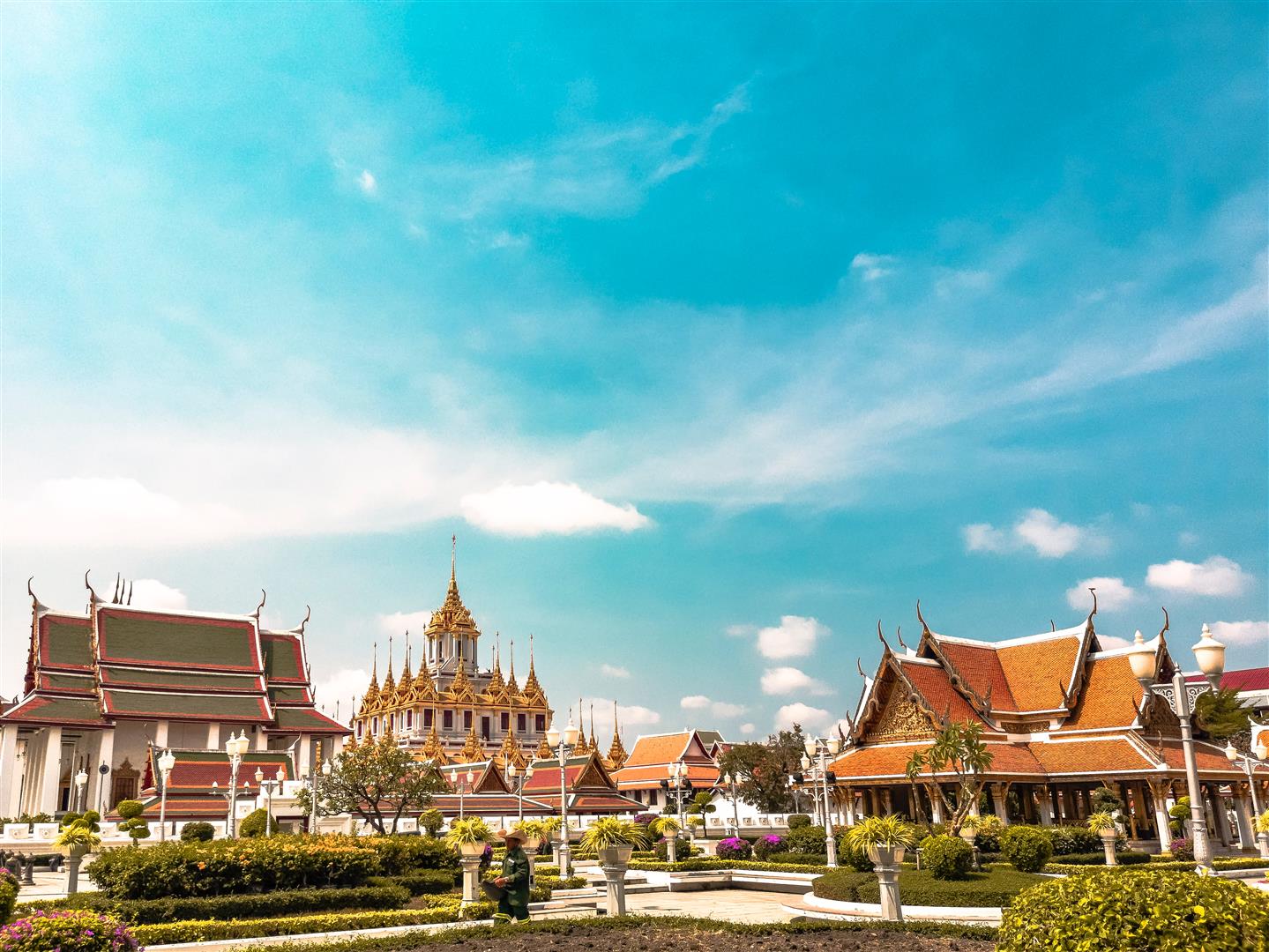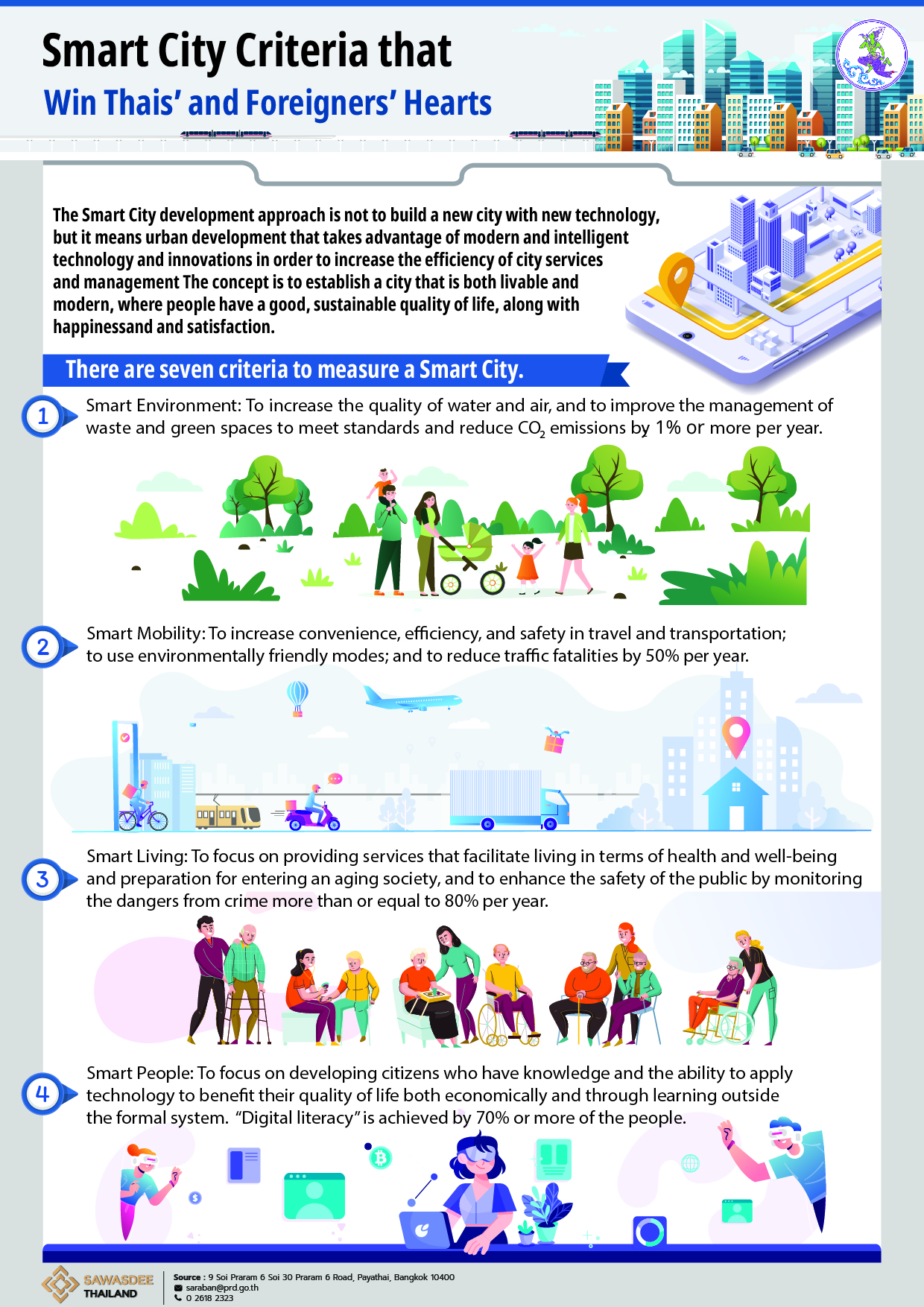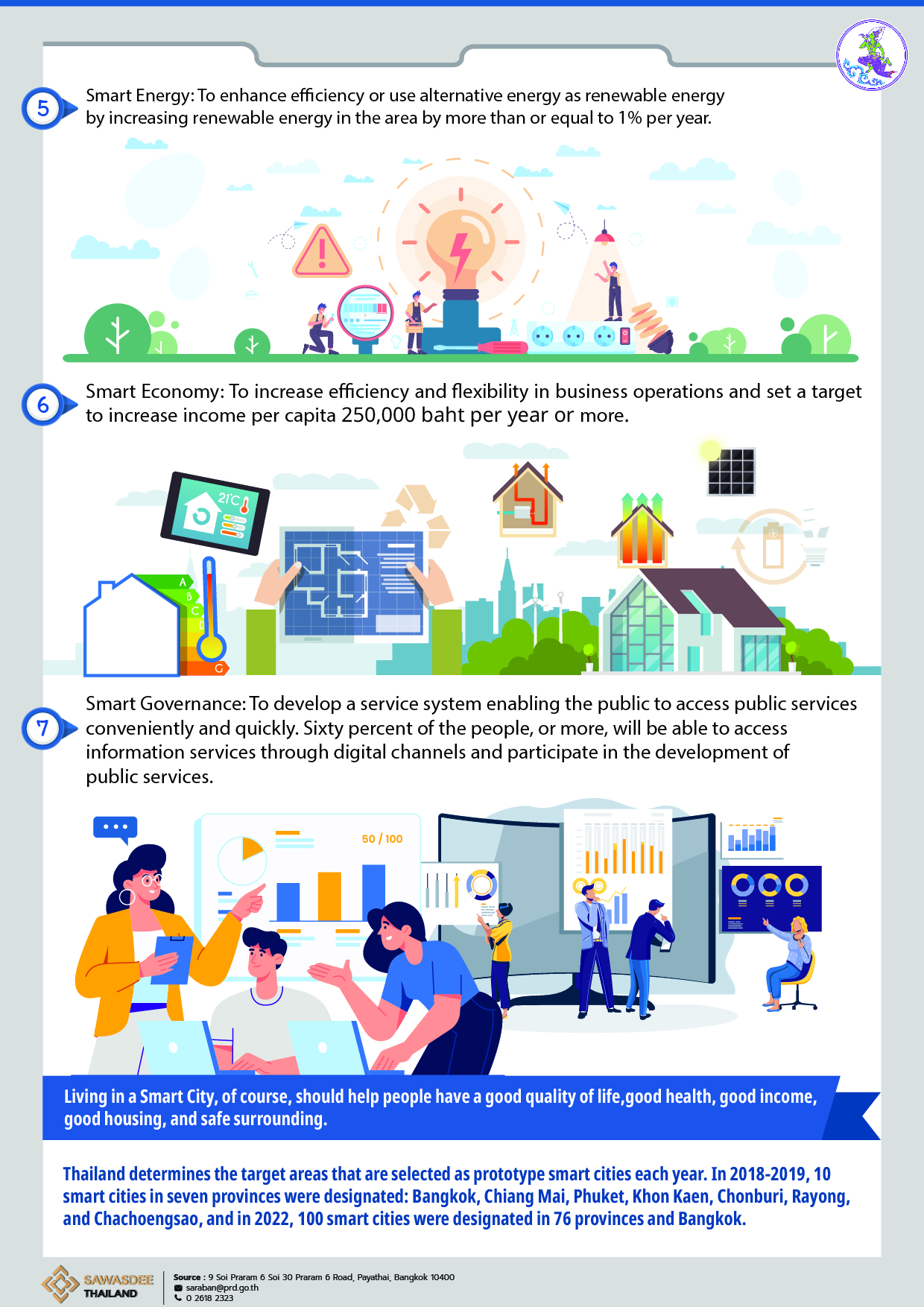
The Smart City development approach does not mean building a new city with new technology, but it means urban development taking advantage of modern and intelligent technology and innovation in order to increase the efficiency of city services and management under the concept of a livable and modern city, enabling people in the city to have a good quality of life, encouraging happiness and sustainability.
There are seven criteria by which to measure a Smart City:
1. Smart Environment: To increase the quality of water and air, and the management of waste and green spaces to meet standards and reduce CO2 emissions by 1% or more per year;
2. Smart Mobility: To increase convenience, efficiency, and safety of travel and transportation, making them environmentally friendly, with the goal of reducing road traffic fatalities by 50% per year;
3. Smart Living: To focus on providing services that facilitate living in terms of health and well-being, preparing for entering an aging society, and enhancing the safety of the public by monitoring the dangers from crime more than or equal to 80% per year;
4. Smart People: To focus on helping citizens to have more knowledge and to be able to apply technology to benefit themselves both economically and socially, as well as learning outside the formal system. The number of people with “Digital literacy” – the ability to use digital tools such as computers and applications – should rise to at least 70%;
5. Smart Energy: To enhance energy efficiency or use alternative energy sources, such as renewable energy, by increasing renewable energy in the area by at least 1% per year;
6. Smart Economy: To increase efficiency and flexibility in business operations, and to increase the average income per capita to at least 250,000 baht per year;
7. Smart Governance: To develop a service system that enables the public to access public services conveniently and quickly. The objective is for at least 60% of people to access information services through digital channels and participate in the development of public services;
The advantages of a Smart City described above, of course, help people in the city have a better living, meaning that people in the city should have a good quality of life, good health, good income, and safe living and housing.
Thailand has selected the target areas for prototype smart cities each year. In 2018-2019, 10 smart cities in seven provinces were designated: Bangkok, Chiang Mai, Phuket, Khon Kaen, Chonburi, Rayong, and Chachoengsao. And in 2022, 100 smart cities were selected in all 76 provinces and Bangkok.


Source: Digital Economy Promotion Agency
Tel: +66 2026 2333